I tend to buy a lot of garlic because we cook with it every day, if not multiple times a day. With my warehouse store membership, I purchase a lot of things in bulk, including produce.
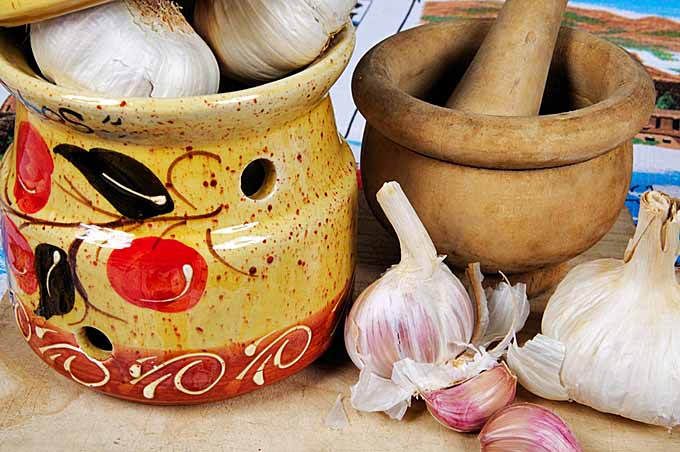
Storing garlic properly helps to preserve the taste, and prolongs shelf life
Surprisingly, garlic is considered by some to be an herb, even though it closely resembles an onion. Onions and garlic are both considered alliums, a family of plants that also includes chives and leeks. Garlic can be used in a variety of ways in the kitchen, as well as medicinally. Some people grow their own, which is something I would like to look into since we do use so much of it.
If you do plant and harvest a patch, the fruits of your labor need to be dried before storing. This allows for the flavor to become further concentrated, and gives it a longer shelf life.
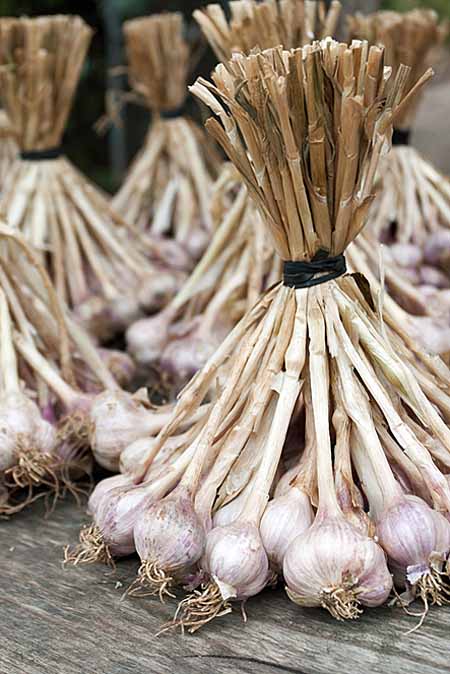
Always wash freshly harvested plants, and then allow them to dry out in a cool, dry place for at least a week. You can also hang them from their stalks in order to facilitate the drying process.
Selection Is Critical – You Want Unrefrigerated, Hard And Dry
When purchasing this herb, make sure you are selecting bulbs that are the freshest available, so they will last the longest. Look for examples that are firm with papery white skin.
Softer ones are over ripened and will not store well for long periods. Make sure there are no visible sprouts from the center. Do not purchase examples that appear shriveled.
Also, avoid purchasing ones that are stored in the refrigerated section of your market.
Cool And Dry Is Key To Resisting Mold And Decay
Garlic is best stored in a cool, dry area in your kitchen. A kitchen cupboard, pantry, or shady corners on your countertop are good suggestions.
Many people make the mistake of refrigerating their bulbs. Refrigeration will cause them to deteriorate, and the added moisture may cause them to become moldy.
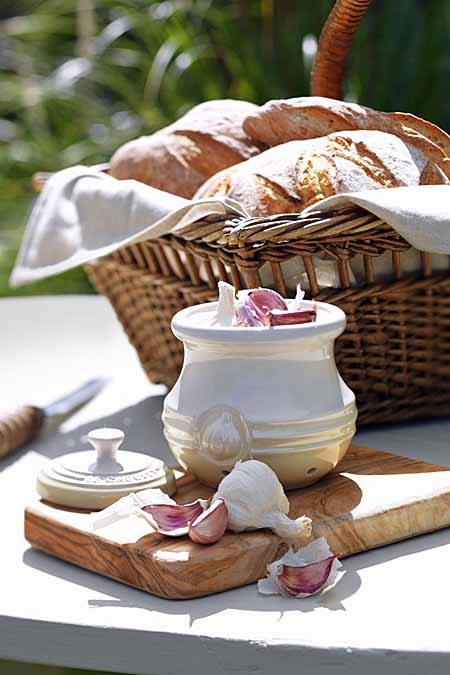
Bulbs should be stored in a wire or mesh container, to allow for air flow. But the absolute best way to store garlic is to use a purpose built crock called a garlic keeper, as shown above and below.
I like the Le Creuset brand for this but there are many other options. The whole goal is to allow your bulbs to “breathe,” extending their shelf life for up to four months.
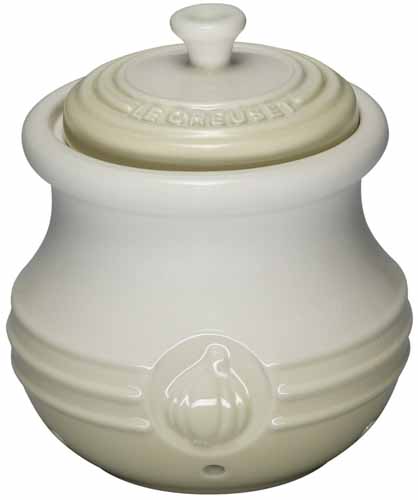
Le Creuset Stoneware Garlic Keeper available from Amazon
Do not use plastic containers or plastic bags for storage. Doing so will contribute to mold growth and sprouting.
Keep Whole For Longest Shelf Life
Intact bulbs can be stored for up to 8 weeks when stored properly. Once you have opened the bulb, use the cloves quickly.
Breaking a garlic bulb open to remove cloves will significantly shorten its shelf life. Broken cloves will stay fresh anywhere from three days to a week. If a bulb begins to feel soft or any sprouting occurs, then it is time to throw it out.
Leftover minced or chopped fresh garlic can be stored in the refrigerator in an airtight container, or zipper lock bag. This refrigerated product will stay fresh for a short amount of time, so be sure to use it as soon as possible.
Throw out any extra after a week’s time.
Freeze As a Last Resort
Although freezing is not recommended since it can change the flavor and texture, this option may be appropriate for those who use garlic infrequently.
Freeze whole cloves by wrapping them individually, in foil or plastic wrap. Store them in a freezer bag and defrost them as needed.
If you have chopped, minced, or diced cloves that you want to store for a longer period of time, place them in a thin layer in a freezer bag so you can break off pieces as needed.
When storing in the freezer, be sure to make sure your bag is sealed tightly so that it will not allow the odor to escape. Think about double or even triple bagging it, just to be sure.
Another storage method involves freezing your herbs inside of ice cubes.
Freeze in Olive Oil
Freezing garlic in olive oil is a popular option, but never store this mixture in the fridge or at room temperature, due to the risk of botulism.
Simply puree 1 part garlic to 2 parts oil in a food processor. This ratio will prevent the mixture from freezing solidly, allowing you to scoop out the amount you need for cooking. Never thaw or allow it to sit at room temperature before using.
Instead, transfer this oil mixture directly from the freezer to your recipe as it cooks.
Pickling
Store peeled cloves by pickling them in vinegar or wine. They will last for about four months.
Here’s how: Fill a glass jar with the peeled cloves. Pour in your choice of wine or vinegar to fill the jar. You may add extra flavor by adding herbs or salt to the jar.
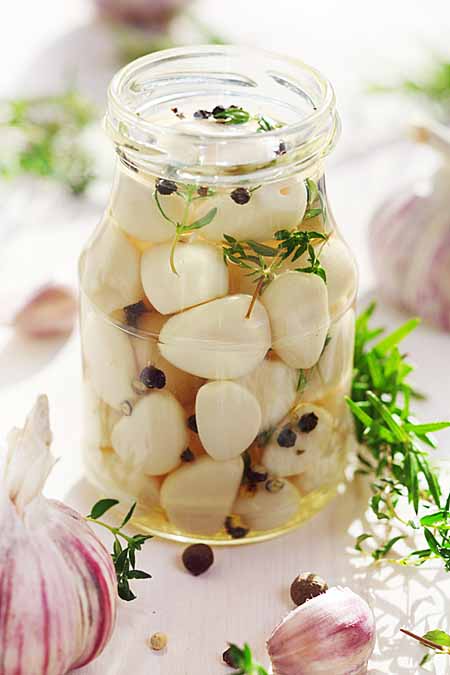
Seal tightly and store in the refrigerator. Discard the contents of the jar immediately if you see any mold starting to form.
Roasting
Roasted garlic can be stored in the refrigerator for about a week, and in the freezer for quite some time. It can be used in the same manner as you would use fresh, plus it is delicious spread on crusty bread.
To make it, lightly grease a baking pan or casserole dish with olive oil and add as many bulbs as you would like to roast.
Bake in a preheated 350°F oven for about 45 minutes, or until the bulbs become soft and pliable.
Cut the tip off and squeeze out the buttery flesh. These roasted bulbs will not freeze into solid lumps, making it easy for you to scoop out the contents as needed.
Dehydrating
Using a food dehydrator or your oven, you can choose to dry out your garlic for storage.
First, peel the cloves and cut them lengthwise.
If using an oven, place the cloves in a baking dish and bake in a preheated 140°F oven for about two hours. Turn the heat down to 130°F and bake until the cloves have dried completely. They will appear brittle and crisp.
Afterwards, you can turn the dehydrated garlic into a handy kitchen spice by using a food processor to transform it into a fine powder.
To make your own homemade garlic salt, add three tablespoons of sea salt for every one tablespoon of garlic.
Store in a glass jar in a cool, dark kitchen cabinet or on the pantry shelf.
About Jennifer Swartvagher
Jennifer is an experienced journalist and author. Her work has been featured on TODAY Parents, The New York Times Blog, BlogHer, Scary Mommy, and scores of other parenting and cooking publications.

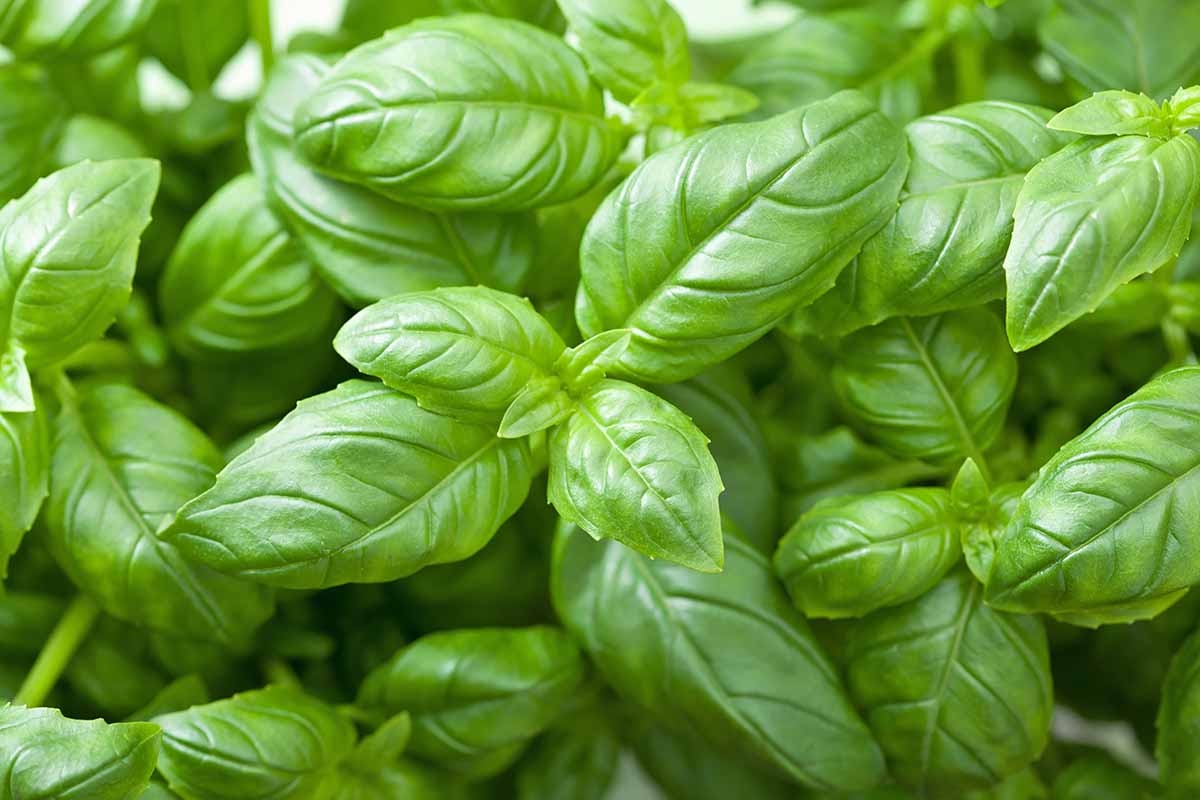
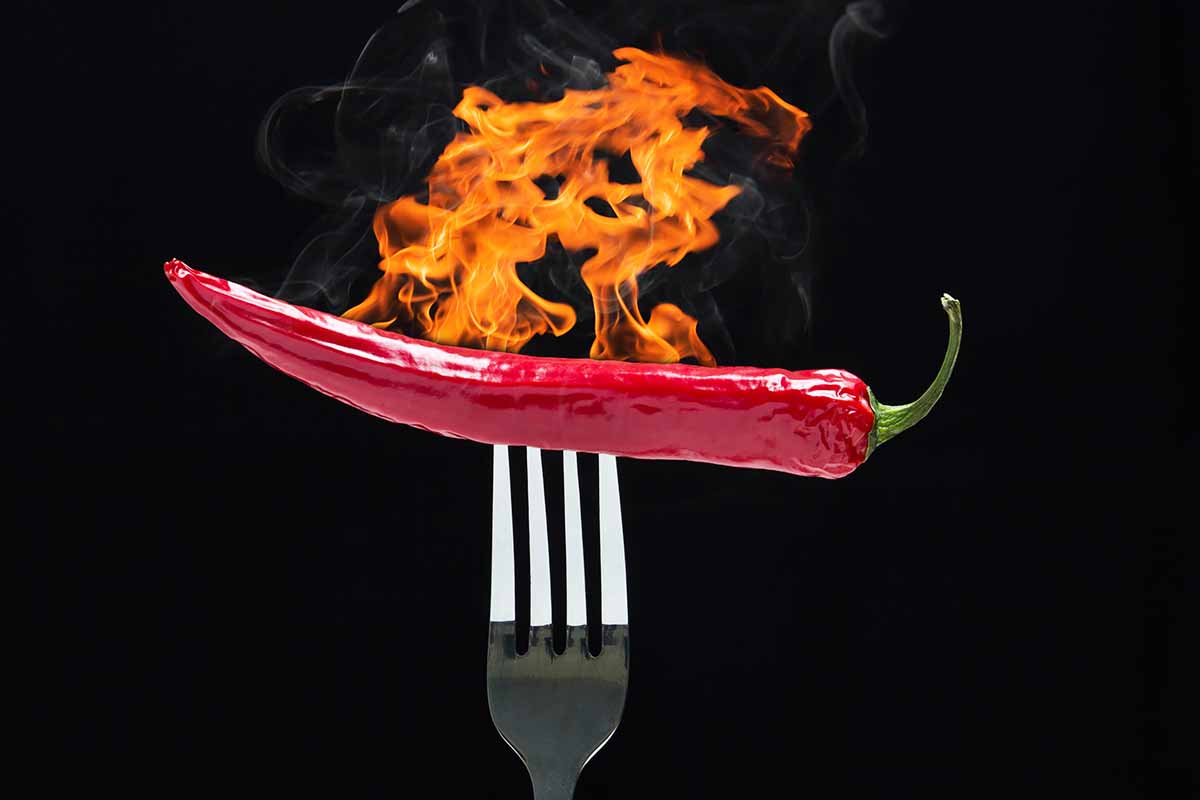
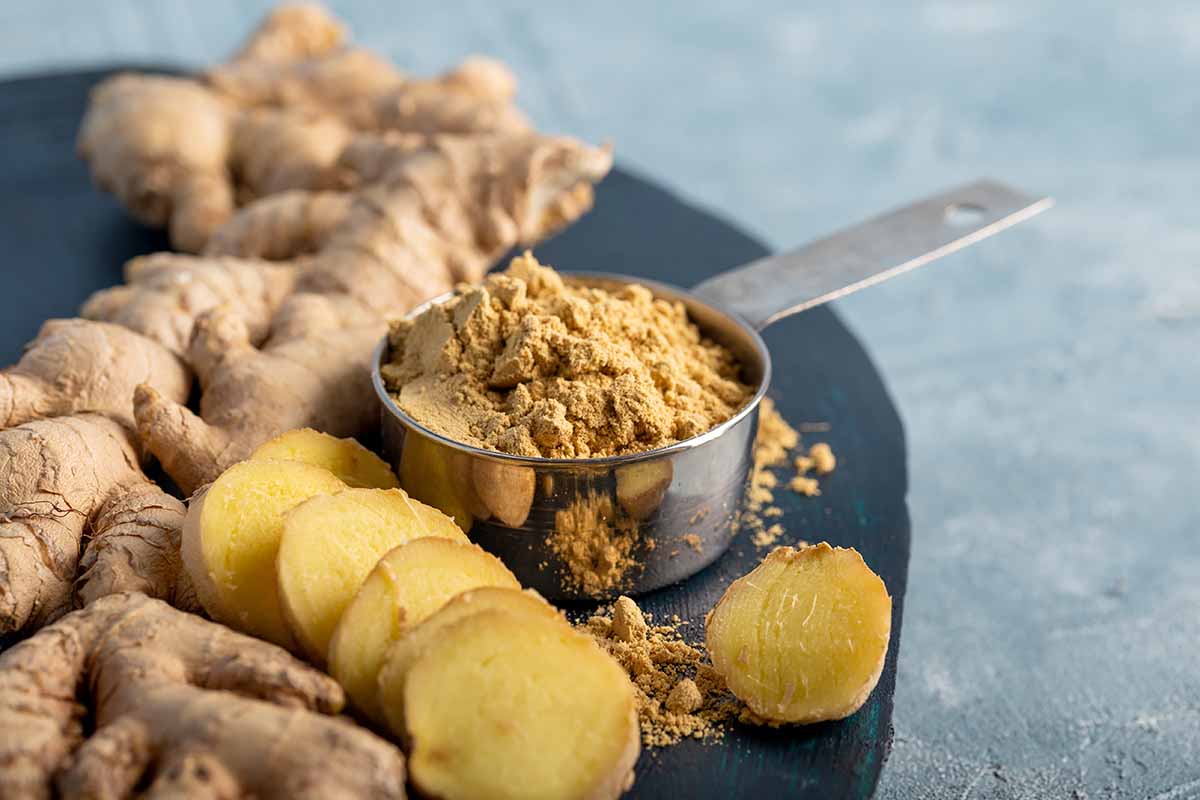
My parents stored their garlic in the refrigerator, so that’s what I’ve always done. But, the big difference is that they used it all of the time, and I rarely do. I’m glad I read this, because now I know I’ve been storing it completely inappropriately, and that’s why it always goes bad. Since I use it so infrequently, I really like your idea of pickling it. That had never occurred to me, and I enjoy pickled foods, so this sounds like a good fit for me.
When I think of garlic, I think of hot buttery bread. In my house we mostly use the powder. Freezing it in ice cubes is something I’ve never heard of before. Does it lose any nutrients when frozen?
I’m another one who mostly uses the powder form because it’s just easier, but I do love fresh. My family would store bulbs in the refrigerator, so I didn’t know that wasn’t the right way to go about it. Explains a lot. I’ve never heard of freezing it in olive oil, so that’s something I may try.
I’ve been storing my garlic in a plastic bag, in the fridge. I use garlic every single day (mostly!) and I never had it become moldy or anything. That’s probably because how quickly it’s gone… I also don’t buy in bulk since it’s just my boyfriend and I. Although, the link you have posted of the container on Amazon is a great idea! Specifically to keep the bulbs fresh and how it should be, also very convenient and a cool way to display my love for this divine herb 😀 Thanks for the helpful tips – I’ll think of this whenever I’m crush a clove from now on.
Oh whoops. I’ve been storing my garlic in the fridge since forever! I’ll start storing it in the cupboard from now on. Thanks for sharing this post, it’ll save me from throwing out my bulbs in the future. I’ve always wanted to grow my own, maybe even making my own black garlic!
My mother has been storing garlic on the counter since forever. Now I know why! I never knew there was a specific kind of container. I might get her one as a present, thanks for the link! I was thinking of making herbed oil with some garlic so the note about it really helped. I just started reading the related article on how to make some. Thanks again for the tips!
That was really useful, thanks. We eat mostly Chinese food and use a ridiculous amount of garlic each week. I had no idea that we shouldn’t be refrigerating them.
For pickling with vinegar do you have any recommendations of herbs that can be added? We tend to use the dark vinegar that is popular locally which has a really sharp taste, but some variety to the flavor would be really nice.
Wow, I guess I’ve been doing it wrong by putting it in the refrigerator after all this time. It has never went bad for me for weeks at at time but I guess it is due to me having the fridge at a really low temperature and in a plastic container. I think that’s the safest place for it to be since whenever I put it anywhere besides the fridge, it tends to grow sports and it sends a signal to my cat to try and eat it. Ever since I tried to grow a garlic plant, she has always had her eye on it and I can’t trust her to go after it if I don’t store the garlic in the refrigerator XD
I remember when I made the mistake of leaving garlic in the refrigerator and it was about 2 weeks before I had to throw them out. Of course I forgot about them at the bottom of the refrigerator and it had sprouts for days everywhere. Will not make that mistake again. I haven’t brought garlic since. Reading this now gives me strength to buy them again since I now know how to care for them.
My family grows our own, and we’ve unfortunately had too much to handle for the past year. Now that we know what to do, I’m sure we’ll never need to buy it again!
I have been storing my garlic on the counter and in a ventilated paper bag on a push pin since I can remember.
A funny and fond memory I have was when I was young. My mom roasting a few cloves on a Friday or Saturday night and eating them slathered on Jewish rye until they were gone. This was a family favorite! Needless to say, Sunday was fun when the family went to church smelling like garlic, as it had severely permeated our skin by that time. No amount of mouthwash, brushing our teeth, or cologne would cover the smell! My mom would just smile and sing!
This is the article I never knew I was looking for, but has all the information I actually need! I have never known exactly what to do with my garlic. This outlines it perfectly for me! I love the garlic crock featured in the article. I usually leave the bulbs right out on the counter, but the crock would be much more appealing.
Good read, I always just store them in the bag they came in when I buy them because I always use them shortly after buying. But in case I want to store longer term this is good to know.
Thank you very much for these garlic storing methods. I especially liked the freezing in olive oil and pickling techniques. Before I could have never bought garlic in bulk. I always had to toss it in the garbage, because it would go bad. The garlic would get hard and turn black. I’m trying your advise soon, so I never run out of garlic during the Holidays!
Oh my! I’m one of those people who apparently is making a HUGE mistake of refrigerating their bulbs! I truly do not know that refrigeration will cause them to deteriorate. Of course, I notice that they do deteriorate for a time – but I just accepted it as part of how garlics are. It just never occured to me that refrigeration is the culprit to why they deteriorate so easily. Drat. But thanks, now I know better.
I usually end up buying too much garlic, as I add it to almost everything. Sometimes a little green sprout starts growing out of the ends. I usually just cut the clove in half and peel out the green sprout and continue from there. Does anyone else do this? Or, should I just toss them?
Most people (especially those who are very “passionate” or strict about gastronomy) will remove the green sprout before using as it supposedly has a more bitter taste, however I’d recently learned that garlic with green sprouts are actually healthier for you and have more antioxidants (or something to that effect). So now I do either, depending on the recipe and what’s more important to me at the time. If I’m using the garlic especially for the health benefits (such as to help fight an infection, cold, flu, etc), then I’ll leave the sprout in (in which case I also allow the garlic to rest for 10 minutes after crushing or chopping to activate the beneficial enzymes, and try to heat/cook the garlic as little as possible and add it near the end of cooking the dish for minimal heat exposure, and lower heat), but if I’m purely using the garlic for flavour and pleasure (or cooking for guests) then I’d be more inclined to remove the sprout before using, especially if I felt the particular recipe might suffer noticeably from any supposed bitterness imparted by the sprout(s)!
I always cut out the sprouts. It’s still good????
I tend to cook with garlic and onions and they are the two things I start with for almost every meal. I was having problem not with mold but with them drying out to the point of almost disappearing. I started to get the kind in the jar already peeled and chopped. However I miss chopping garlic the old fashioned way. I may give these techniques a try.
I grow a large amount of garlic in my garden every year, and it usually gets me through six or seven months of the year. I’ve never had a problem with mold, and the main reason why I clicked on the article was to find out what is causing people to experience mold. I didn’t know that some people stored bulbs of garlic in the refrigerator, my philosophy has always been to store it in the pantry, and the only times I would put it in the refrigerator was when I chopped a lot of garlic for use during the week, or if I had any leftover roasted garlic.
Thanks for the article because I learned something today about how some people store garlic, and that way of storing could cause mold. Now, if I have a friend or family member who has this issue, I know how to help them solve this problem.
I’ve actually been looking for a garlic keeper lately. My parents have a nice clay one but I’ve been storing mine in a plastic Tupperware, which I didn’t even realize was a no no! Obviously I came across this article at the right time 🙂 I cook with garlic frequently but I don’t use it quite often enough to run through all of it before it starts going soft. I definitely noticed that keeping it refrigerated made it start to wilt faster.
I have tried growing fresh garlic, the results were OK, but to be honest it was not worth the cost because garlic is so cheap in the supermarket. With limited time, there are other things I would prefer to grow that are not as nutritious if bought in supermarket.. garlic is basically the same even if you grow it yourself, but things like romaine lettuce and tomatoes are better when self-grown.
With my extra garlic, I usually freeze it in small portions with melted butter.. probably not the best choice, but almost always when I juse garlic, it is with something that benefits from a butter flavor.
Never thought it possible to make your own garlic powder and garlic salt. Holy moly! I’m excited. I have a ton of garlic that I bought in bulk. While I used the vast majority of it, I know some of it was likely to reach its expiration before it all got used. I’m going to make some garlic powder instead with a dehydrator. I love projects!
I feel like I have lived a lie my whole life. Garlic is a really common ingredient in my house too, there’s always garlic on my kitchen. And I have literally made all the mistakes that you just mentioned, we refrigerate them, and put them in plastic bags (sometimes on the refrigerator), and store them in plastic containers in general.
I have seen garlic containers around the market too, but I always thought that they were kind of useless, but I guess that I need to give them a try to really see the difference.
Thanks for sharing!
The garlic keeper shown in this article is really beautiful, but supposedly glazed ceramic isn’t ideal. It’s especially a no-no to buy a garlic keeper that’s glazed on the inside, but ideally even glazing on the outside isn’t very good either, as it doesn’t allow the garlic (or ceramic) to “breathe” properly. Disappointing, as I personally prefer the look of the glazed, painted ones better than the plain ceramic or terra-cotta ones, but if I’m to use a one then I’d want it to serve its true purpose the best way possible, and as it should. Though some people may not care as much, especially if they use garlic quickly… and considering that even a garlic keeper with a glazed exterior *must* be better than keeping in the fridge anyways I’d think!
Enjoyed this article.
I am a third generation Sicilian and I have sometimes stored garlic in the fridge. I found no problem with that if it is short-term (several months). I have noticed that storing it at room temp for about the same amount of time it starts to sprout. We love our garlic and I wonder what is best. My parents and grandparents never had this problem because they consumed
it so fast.
I like that you mentioned that you can extend the shelf life of garlic by letting the bulbs have fresh air. Today, my wife bought some black garlic for a few recipes that she wants to try out, and we are looking for the best ways to store it for as long as we can. I will be sure to let our garlic bulbs breathe, so we can keep them for as long as possible.
Thanks for your comment, Easton! Black garlic is traditionally fermented and aged, so it’s best stored in an airtight container in the refrigerator once that process is complete, and you’ve cracked the heads open to start removing cloves for use in your cooking.
Thank you Allison, I learned something new today thanks to you. Supermarket garlic around here is from CA; I store it in an unglazed keeper but it usually turns to rubber shortly. I live alone & don’t use it daily; keeping it in wine or vinegar is a great idea!
WE GROW HUNDREDS OF POUNDS OF HARDNECK GARLIC PER YEAR. I recycle any that isn’t sold by slicing it thin with a mandoline and dehydrating it, by making logs of compound butters using garlic, herbs, sauteed onion, roasted red sweet pepper and steak seasoning, which are then stored in the freezer and used as needed, and by making garlic infused olive oil in a crock pot.